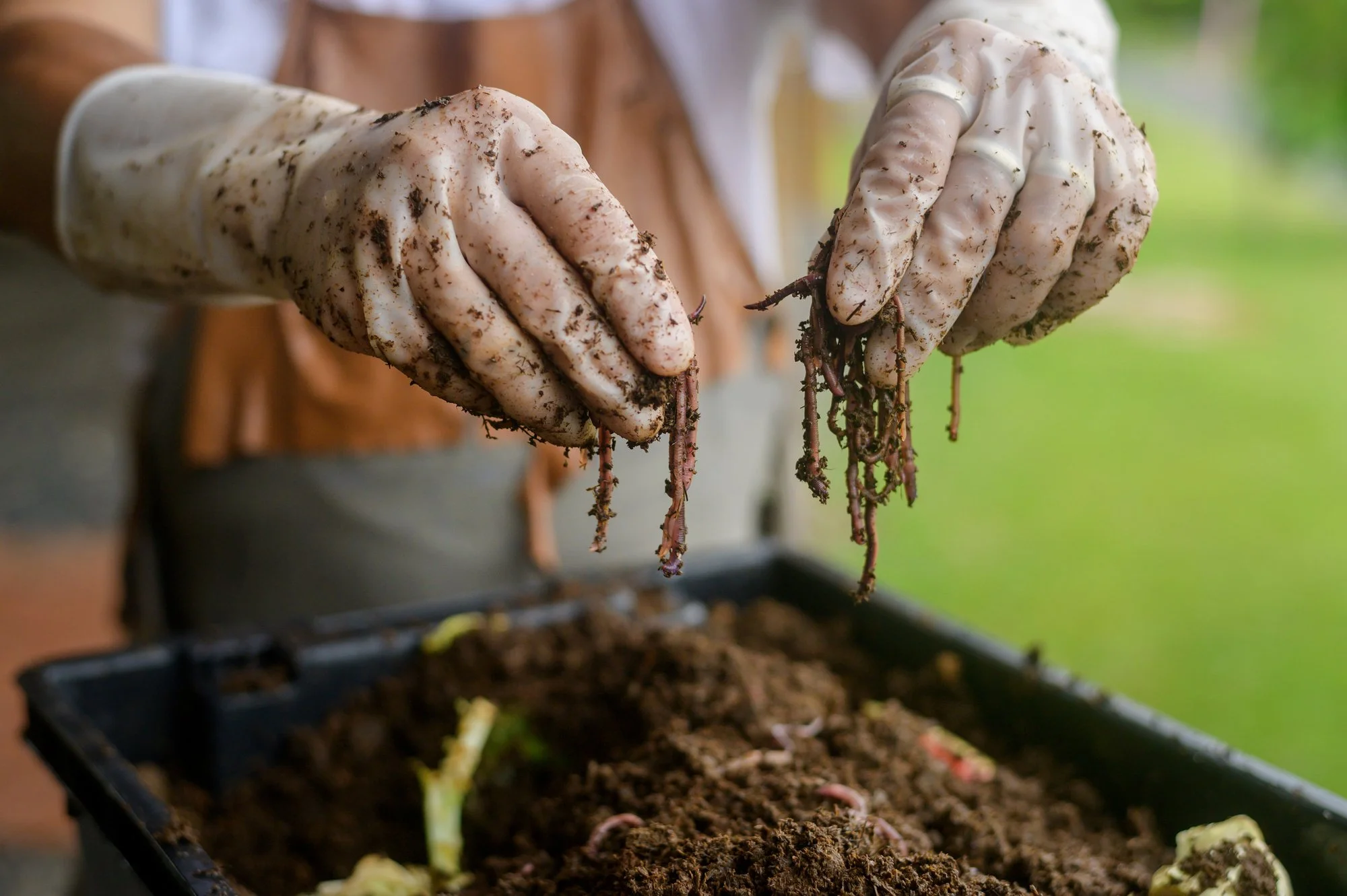Worm Farming at Home: 2 pros and 3 cons
/Worm farming refers to the practice of composting with worms. Using more organic matter at home is a good idea to save the environment and reduce trash. With worm farming, the expected end-product is a nutrient-rich, chemical-free compost for indoor and outdoor gardens, vegetable farming, and lawns.
If you’ve long considered starting worm farming, it’s essential to go through its pros and cons first, just like any other project. Knowing what those help you come up with a better conclusion as to whether or not it is for you before you invest in worm farm kits, among other essentials needed.
This article gives you a run-down of what those pros and cons are.
The Pros
Food For Worms Are Easy To Find
Worm farming works great for homeowners simply because keeping those worms well-fed and healthy is easy. Materials you can use for food for the worms include kitchen waste, food scraps, and garden waste. It means you have that right at home. There’s no need to buy any other extra food intended explicitly for the worms.
The only rule to follow when feeding your worms is to avoid bones, greasy food, dairy, and meat, as these are difficult to swallow. As for garden waste, stick to old leaves and grass cuttings and avoid woody substances, as worms can’t degrade those as well.
No Curing Period Is Required
Other composting methods usually have a curing period, where the pile's biology changes and any toxic plant compounds are neutralized. Before using the compost, it has to be left to sit for at least a month before using or planting on it.
With worm farming, however, this curing period is absent. Once the castings separate from the worm bin, they can immediately go on the plants. It's because worm castings are already rich in beneficial microbes that positively affect the soil as soon as it is applied.
The Cons
Worm Farms Require A Lot Of Preparation, Skills, And Knowledge
Worm farms aren’t the most accessible type of composting versus other ones, such as those that use organic and biodegradable matter from vegetables, fruits, and food leftovers. Before you can even start worm farming, it’s crucial to have all those ready first to increase the likelihood of success.
As a quick guide, here are a few pointers to remember and familiarize yourself with first as regards worm farming:
You need to have quite several worms, depending on how big the compost size is, so the worms can sufficiently cover the area, plus an added layer of bedding to protect them;
You need to arrange for someone to feed and take care of your worms when you’re on holiday for a long time.
You need to master the perfect conditions; otherwise, worms can die when they’re too cold or hot.
Once you’ve gotten the hang of it, however, worm farming is one of the most effective and rewarding methods of composting and breeding worms. Like any other pursuit, it takes time to learn and study, but you’ll eventually get the hang of it.
Time and Patience are Needed
Worm farming and composting take time. It takes three to six months for worms to digest the organic matter and turn it into usable soil. This timeframe is also affected by additional factors like:
How big the compost bin is;
How frequently the contents of the compost bin are turned;
How many worms do you have?
If you’re willing to wait and get the work done, this time and patience requirement shouldn’t be that big of a deal. It depends on how busy your daily schedule is and whether or not you’ll have enough time to dedicate to worm farming.
Worm Farming Requires Maintenance
Along with time and patience, maintenance keeps your worm farm running well. Worms must function well, which goes beyond proper feeding. Here’s an essential checklist to follow to ensure your worms are well taken care of:
The temperature has to be around 60 to 80 degrees F;
The bedding has to be moist and regularly turned to keep proper airflow;
The castings have to be harvested every few months to stop them from spoiling the bin.
Take time to read and study the guidelines, learn as you go, and eventually, you’ll get the hang of worm farming.
Final Thoughts
Composting with worms is one of the most effective ways to get organic matter and manure from waste. Whether you have a small or large garden, it’s also one of the most doable, but only after you’ve backed yourself up with sufficient knowledge to get this right. Otherwise, if you don’t take the time to master and learn, you could start prematurely, which, in effect, also affects the success of your worm farm. The pros and cons above should guide you towards navigating your way with worm farming.






















